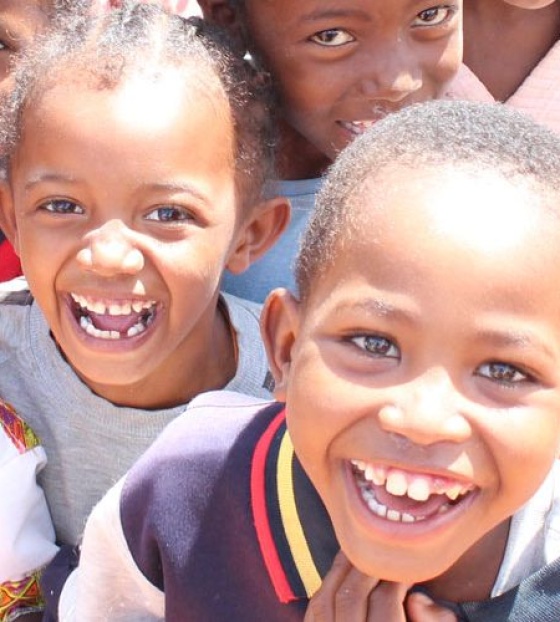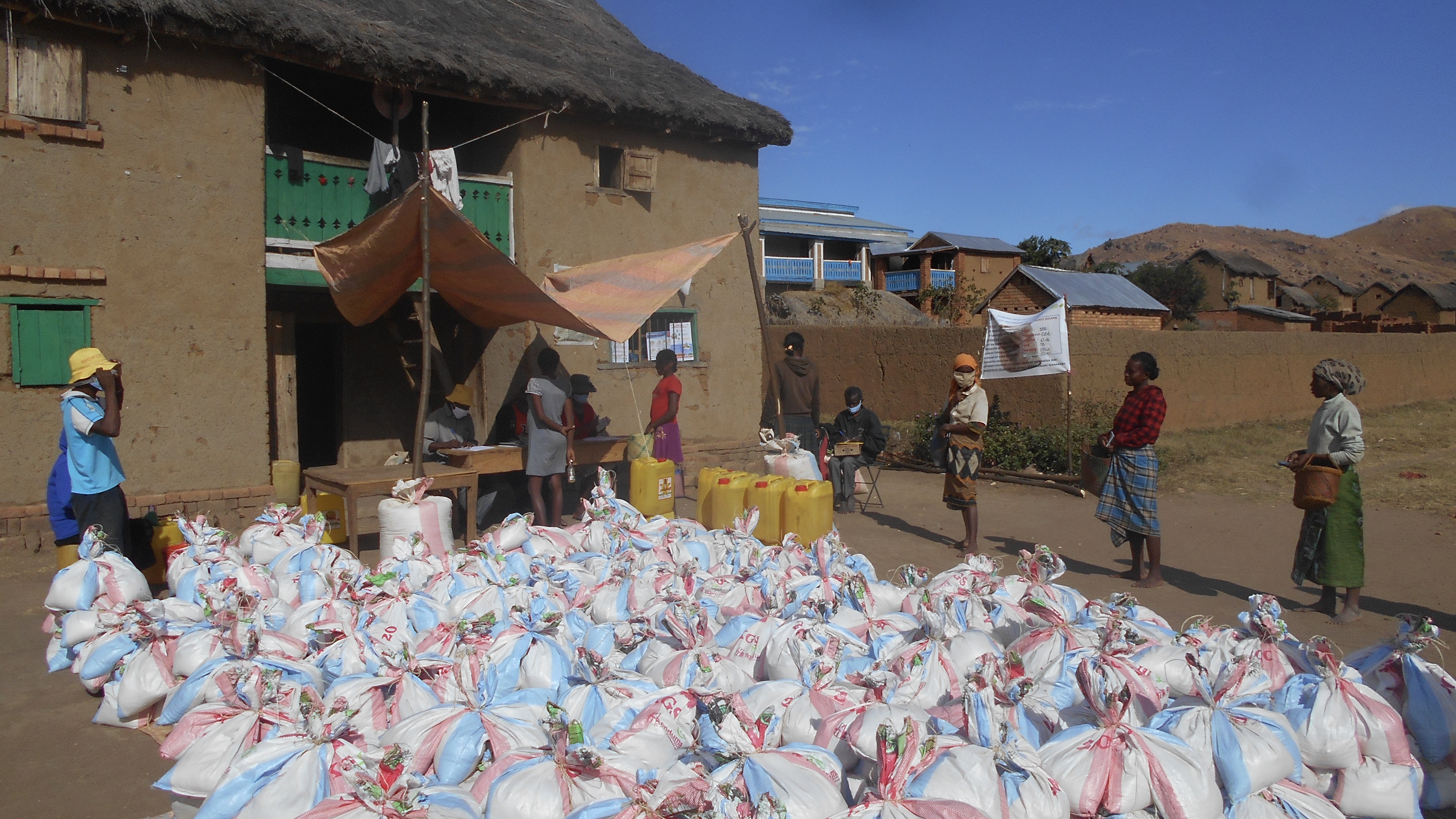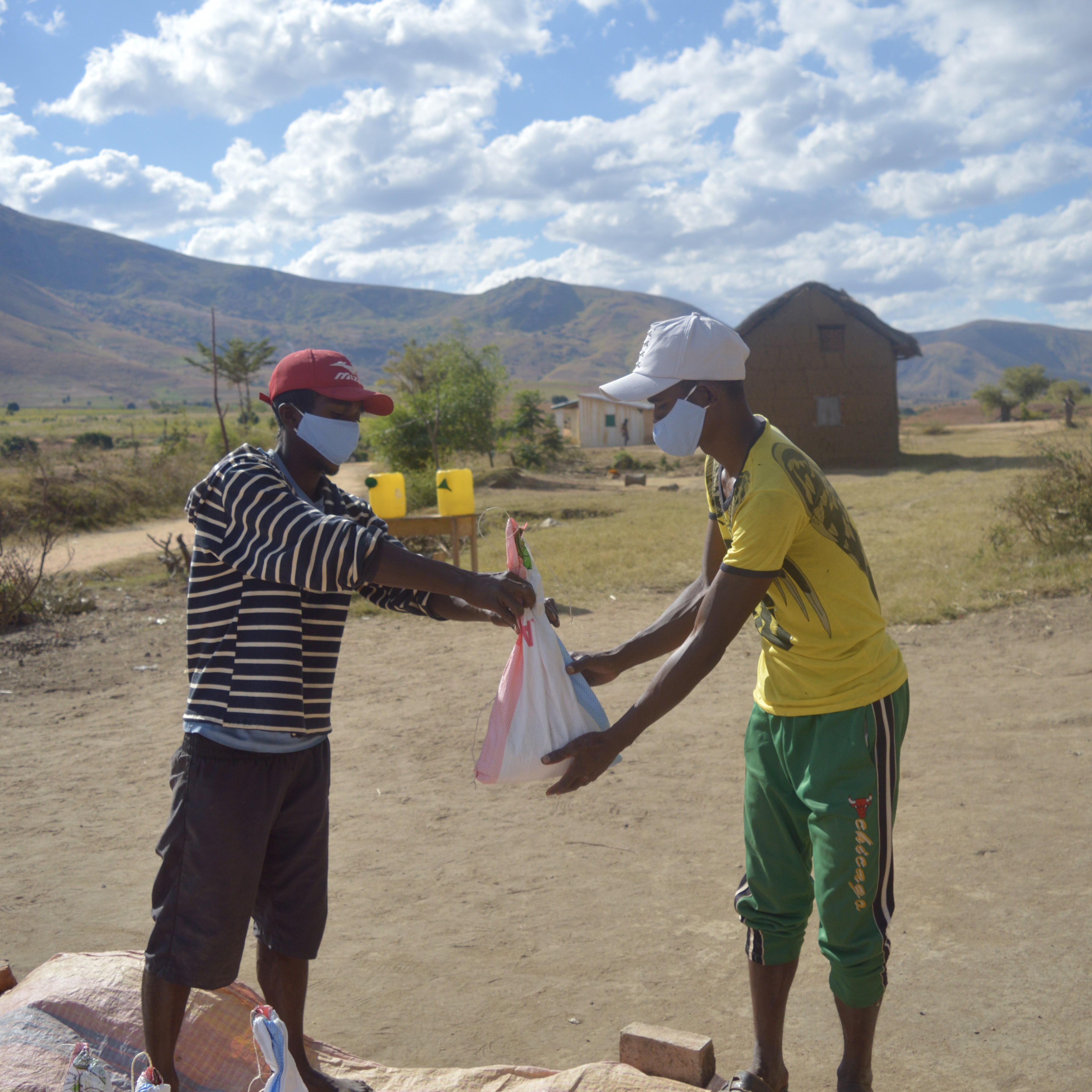

Keeping our promise in Madagascar
Despite the pandemic, Mary's Meals is now feeding more hungry children in Madagascar. We spoke to our programme partner, Feedback Madagascar, to find out more
When Covid-19 spread around the globe, countries went into lockdown and classrooms began to close. In Madagascar, which was already one of the world’s poorest countries, school closures were a blow for families whose children depend on a daily serving of Mary’s Meals.
But thanks to a small group of committed staff and volunteers from our partner organisation, Feedback Madagascar, we kept our promise to all of the more than 9,000 children we feed.
Working with local volunteers, we delivered community-led distributions of take-home rations, ensuring that children could still enjoy a daily meal while they learned at home.

And there’s more good news. When children returned to class in November, and we began serving meals in schools again, we didn’t just reach the 9,000 children who had been receiving rations at home.
Incredibly, with your support, we also expanded our programme, providing an additional 12,000 children with life-changing school meals!
We asked Feedback Madagascar to share some of the challenges and achievements of 2020:
What was it like when schools in Madagascar first closed?
In the remote villages where we work, rumours started to grow, leading to pockets of doubt and fear. The biggest upset was the sudden closure of schools. It was bad for the children getting no education and no meals, bad for the parents who were unable to work as much, and bad for the teachers, especially those who would not receive pay.

How was the school feeding programme affected and how did you respond?
When schools closed, there was still two weeks' worth of Mary’s Meals food in the stores, much of it perishable, but the kitchens were closed. Our school feeding officers quickly took a food inventory and started discussions with parents and teachers about what could be done. Mary’s Meals engaged with us to work out the best strategies and response to the new situation. Instead of volunteers cooking and serving meals at schools, we organised a system of getting food to parents to cook for their children at home.
What challenges did you have to overcome in order to keep the programme running?
It was a logistical leap into the unknown. Luckily, our staff and volunteers had the necessary skills and local connections to adapt and arrange a very different feeding programme, despite the rapidly changing situation. We found a warehouse in the nearest city, Fianarantsoa, and spent many hours sourcing produce, unloading deliveries and packaging food parcels to be distributed in the villages. All the while, we maintained social distancing, wore masks, and negotiated with authorities to overcome travel restrictions. Many children live up to 5km from school, so actually reaching these communities was and a huge part of the new work. Once we reached the villages, we had to safely get food to the parents. We also provided communities with information about Covid-19 and the guidelines to help them stay safe.
What difference did these distributions make to communities during Madagascar’s lockdown?
This proactive response gave them some confidence in the face of growing fears and rumours. An adult from each household would come to receive their children's food parcel. While doing so, they had the chance to learn how to practice social distancing, hygiene measures and mask wearing. They were also informed by our staff and volunteers about the latest Covid-19 news and advice. Of course, the families were extremely grateful. The food helped communities to remain healthy and physically strong, contributing to their resilience should the pandemic strike them. The bars of soap that were distributed were appreciated and contributed directly to the prevention, not just of Covid-19, but of other common diseases prevalent in Madagascar.
What does the future hold now that schools have returned?
There is huge enthusiasm and motivation for the feeding programme amongst parents and children. Handwashing, sanitation and hygiene has become the new standard, which will have great positive benefits on heath in the whole community. There is even more energy and dynamism than before to engage with Mary’s Meals and make school feeding work as well as possible.
Misoatra amin' i Mary's Meals...tsy nanaofitia ranotrambo be fihavy fa mora ritra
Thank you, Mary’s Meals for your great well of abiding love, which is unlike a babbling brook that quickly dries up.
Thank you for making this life-changing work possible. To help us reach even more children in Madagascar and around the world, donate now
Please note, the Mary’s Meals feeding programme operating in prisons in Madagascar has also continued throughout lockdown. Together with our partner Grandir Dignement, we have continued to feed around 200 vulnerable children in prison, with additional children being reached with daily meals because of a slowdown in the judicial process